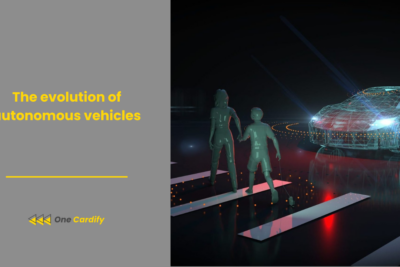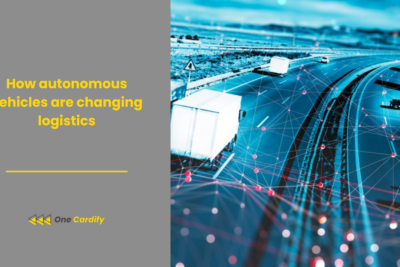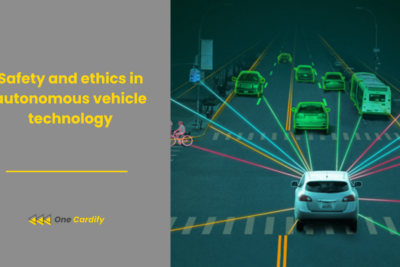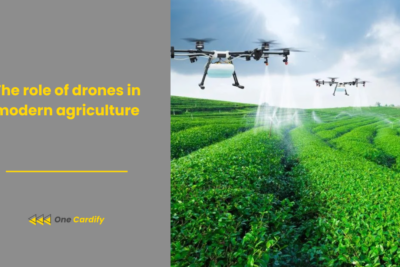
The impact of self-driving cars on society
Autonomous vehicles will revolutionise every day life in an almost unrecognisable way. It is very important to understand the social implications of rapidly advancing technology of self-driving. This blog post is going to delve upon how these technical wonders are going to reshape our universe, featuring particular vital elements.The area of change is wide, from improved road safety, change in urban landscapes and influence on employment sectors. In this future that is before us, issues of ethics, accessibility, and environmental consequences also become prominent.The path to a world ruled by the self-driving technology is interested and full of challenges. By examining these sides, we want to give an all-encompassing picture of the forthcoming autonomous revolution.
The Automation of Transportation
The first impact of self-driving technology is on road safety. Autonomous vehicles with their precision and speed of reaction, promise to cut the percentage of accidents caused by human fault significantly. This has the potential to save tens of thousands of lives every year.Furthermore, driverless cars bring the opportunity of new drivers for those who cannot drive because of age or disability, changing their everyday life with a new freedom.Self-driving cars also improve traffic flow and hence reduce congestion and commuting times, making travel more predictable and less stressful.The as well environmental benefits are substantial, as the optimized driving patterns and the opportunity to integrate electric vehicle can significantly reduce emissions.
Related content
Related content
Urban and Environmental Reimagining
The cities will undergo major transformations as the autonomous vehicles become dominant. The emptiness of the parking spaces needed for urban, residential and commercial centers may lead to a re-design of such areas with emphasis on green zones and pedestrian areas.This technology also promotes shared vehicles, which by extension reduces the number of vehicles on the road and thus the carbon footprint, thereby supporting the process of transforming urban environments into more sustainable ones.The new paradigms of urban planning could appear, directed at the effectiveness of transportation routes rather than at the provision of the private vehicles.But the transition also brings challenges including the possible growth of urban sprawl as commuting becomes easier.
Impact on Employment and Economy
Self-driving technology would prove to be a two-edged sword for the job market. While it may eliminate a few roles, especially in the driving and delivery services sector, it also creates opportunities for tech, maintenance, and fleet management.Economically, the implications are huge as there are cost savings on logistic and delivery services. Nevertheless, these advantages should be weighed against possible job losses.The ripple effect might impact other areas such as those that are not related to transportation as goods and services become more available.Liability and regulation in autonomous transportation require adaptation of legal and insurance sectors.
Challenges and Ethical Considerations
The popularity of self-driving technology comes with challenges. One of the primary considerations is dealing with safety issues as well as setting up strong legal frameworks to win trust of the public.Questions of ethics, for example, of decision-making in cases of inevitable accidents, present difficult problem for developers and legislators, too.Another significant challenge is provision of an equal access to this technology avoiding division in society where only certain categories of the population would benefit.Data security and privacy issues as well require attention because such vehicles are going to collect too much of private information.
Looking to the Future
The role of governments in ensuring secure networks and fair distribution of benefits associated with these technologies will be pivotal in the emerging autonomous vehicle technology shift.Coordination with the intelligent infrastructure of the city and the urban transport system will be a key issue to be addressed and taken into consideration in the proper use of self-driving technology.In the long-run, this dynamic process of evolution could not only redefine the way we commute, but also leave its mark over entire lives and society in general.The pathway is rather more intricate rather than the end point and the steps of technologic and societal development we will take through along the way.
Self-driving cars have the potential to reduce accidents significantly as they eliminate human errors, the primary cause of road accidents. However, ensuring the technology is fail-safe is a continuous process of development and testing.
There's a potential for job displacement in driving sectors, but self-driving technology will also create new roles in technology development, system maintenance, and fleet management.
Yes, with proper planning and infrastructure adjustments, autonomous vehicles can be seamlessly integrated, leading to more efficient and cleaner cities.
Optimized driving patterns and the potential for electric vehicle integration can significantly reduce emissions and contribute to achieving sustainability goals.
From transforming urban landscapes to offering new mobility options for the disabled, the impacts are vast and varied, promising enhanced safety, efficiency, and environmental benefits.
Challenges include establishing safety and legal frameworks, ethical dilemmas in programming decision-making processes, and ensuring data security and privacy.
While significant progress has been made, ongoing development, public acceptance, and regulatory frameworks are needed to fully realize the potential of self-driving cars.
Conclusion
As human operated cars become a thing of the past, self-driving vehicles are seen as pioneers of a substantial epoch in humanity. It extends from security, green initiatives, capital design, and the economy. With such a gradual transition, cooperation between automation, state, locality and the community is important in order for the unlimited possibilities provided by the autonomous cars to be leveraged.The way forward sounds pretty but is much easier said than done; undoing and understanding all the challenges and opportunities to fit autonomous cars in society will be painful yet exciting. In the long run, though, their achievement will not be driven only by the technology they solve, but by the acceptance, empowering rules, and the life usage of the technology.Adopting the stage of automation needs a joined-up decision process to assure both humanity and technology are working together to create a world, which is distinct for the reasons of health, purity and involvement.






Related Posts